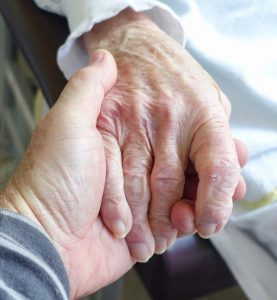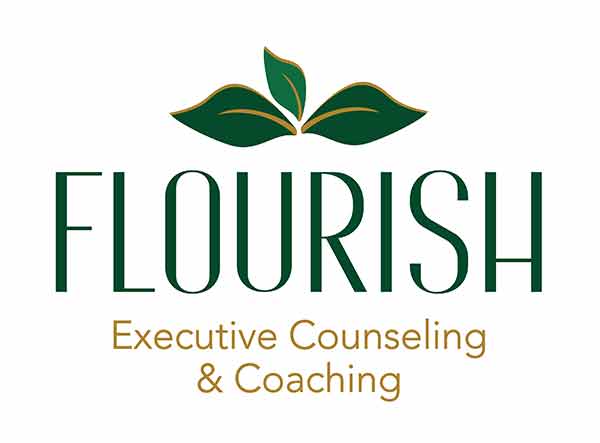
Angela chats with Nadine Cornish, a caregiver consultant and coach who owns The Caregivers Guardian, about ways families can be proactive when it comes to caregiving for their elderly parents during the COVID-19 pandemic.
Angela: My first question for you is what advice do you have for all of those out there who are concerned about the health and wellbeing of their parents?
Nadine: Well, I want to say that I’m really glad that we have so many more people concerned about the health and wellbeing of their parents. Unfortunately, the older we get, all too often, we’re kind of forgotten. This pandemic that we are dealing with is an opportune time for us to reassess and reevaluate our relationships, and our involvement with our parents. So The first thing that’s happened is that we’re thinking about their wellbeing. We’re thinking about how this pandemic could possibly impact them, and how it is impacting them. Let’s start with those of us who live near our parents. The first thing is to assess your risk factor, to determine if you have been exposed or if you’re not feeling well. If so, now is not the time to visit mom or dad, or grandma and grandpa. Now is the time to stay away, but get in touch by picking up the phone and calling them. Let them know that you are really concerned about their wellbeing. Also, if it’s possible, and they have the capacity to use videoconferencing, now is a great time to teach them how to use Facebook, Zoom, or Skype so that you are able to see them. The idea is to connect more, but distance yourself if you’re at risk or putting them at risk. There are a lot of long distance factors. So if it’s a long distance situation, I suggest leaving something tangible with them. For example, my dad just turned 90 years old. I saw him last week, but I realized that I didn’t leave him anything tangible so I am working on a love letter to my dad currently. This letter lets him know how much he means to me. Especially right now, I want him to know what he means to me. I just would encourage you to consider how you can connect in a way that’s meaningful, and that will bring your loved one value and make you feel better about being connected.
Angela: That’s incredible advice, and there’s never any harm done in saying, “I love you, and you mean the world to me” too many times.
Nadine: Exactly.
Angela: Are you concerned about this pandemic, and the effect that it’s going to have on those who are already caregiving for loved ones?
Nadine: Absolutely. I think next to the elders in our society, some of the people that we tend to take for granted in our lives are the caregivers– the people who are taking care of the people that we love. That could be our family caregivers, Auntie who’s taking care of everybody or a loved one taking care of another loved one. We just take them for granted, because that’s what they’ve always done. We don’t think about the stress or the toll that 24/7 caregiving can take on anyone. And with the added stress that we’re all experiencing, it’s really important to pick up the phone and check in with those caregivers to see how they are doing. Also, assess your role. We’ve all got way more time on our hands than we imagined we would have. Some of us much more so than others. This is a really opportune time to assess our role. How do we support the primary caregivers in our lives? If there’s someone taking care of grandma, and we’ve been missing in action, now’s a good time to figure out what we can do to support that individual. What kind of time can we put in with our loved ones? And if we have the available resources, how can we support that person who is the primary caregiver in getting the additional support that they need since you might not be able to provide it because you’re long distance.
Angela: Yeah, for my friend who needed to move her mother-in-law in with her, I gave her support just by reaching out and checking in with her. Is there anything else that I should be doing?
Nadine: Yeah. A few of us went to the spa last night, right? So there are some things that you can do to give your loved one a time out from the caregiving routine. Even if it’s not the spa, especially if you’re not at risk and you can afford to put in a few hours and to support that person who needs the care who can’t be left alone, then you’re there giving your loved one who is the primary caregiver a much needed break.
Angela: That’s wonderful. So what’s your definition of self-care, and who do you feel like really needs to be very vigilant about practicing it right now?
Nadine: So I think the gift of what we’re all experiencing as a society right now, is the opportunity to really reassess how we are living our lives and whether or not we are living on purpose. Part of living on purpose is taking care of yourself so that we’re able to operate in that purpose. It’s a really simple concept, but we stay so busy doing that we don’t stop and take the time to be. We don’t stop and take the time to assess what self-care means. I have a client whose idea of self-care is going out into her backyard, and this would be her time of year as spring is approaching, and pulling weeds. She gets so much peace from playing in that soil, and pulling those weeds to get her garden ready. But she tells me all the time, “I take care of myself by getting into that yard, and pulling those words.” She’s very clear on what her self-care looks like. Now, for you and me, I don’t think pulling weeds is our thing, right?
Angela: It really isn’t. In fact, if you could send her over to my yard, that would be great!
Nadine: As soon as she finishes mine! But identifying it for yourself is so important. So for me, I love to dance so dancing like nobody is watching for 15 to 20 minutes a day, and doing that is really important. I love being on bike, and we have amazing trails here in Colorado. If you’re outside of Colorado, maybe not so much, but it’s just something that I absolutely love to do. What’s your self-care? What does that look like to you?
Angela: Time outside…time with my puppy who brings out the playful side of me. And of course, I’ve got to be a firm advocate of counseling and therapy. Because right now, everyone’s stress bucket is pretty full. It doesn’t matter how big or small your coronavirus piece is, everyone’s stress bucket just got a little bit fuller, and I think it’s important that we all proactively scoop out of there so we can prevent ourselves from overflowing with stress.
Nadine: Absolutely. I cannot advocate enough for checking out counseling and therapy to talk to someone who can support you especially if you feel yourself overly anxious. If you feel like you’re really not doing well, I know just the perfect counselor and therapist. And if you’ve been listening, you know as well. Angela is absolutely phenomenal at providing support to individuals and couples!
Angela: Well, this is going to turn into a giant love fest! I’m not going to out anybody, but there are members of my family who hired Nadine to consult with them as they are caring for an elderly parent with special needs. And she has been an invaluable resource. If folks want to learn more about the coaching and consultation services you offer to families, how can they reach you?
Nadine: They can call me at 303-394-1963, and you’re welcome to go onto the website at https://www.tcgcares.com/.
